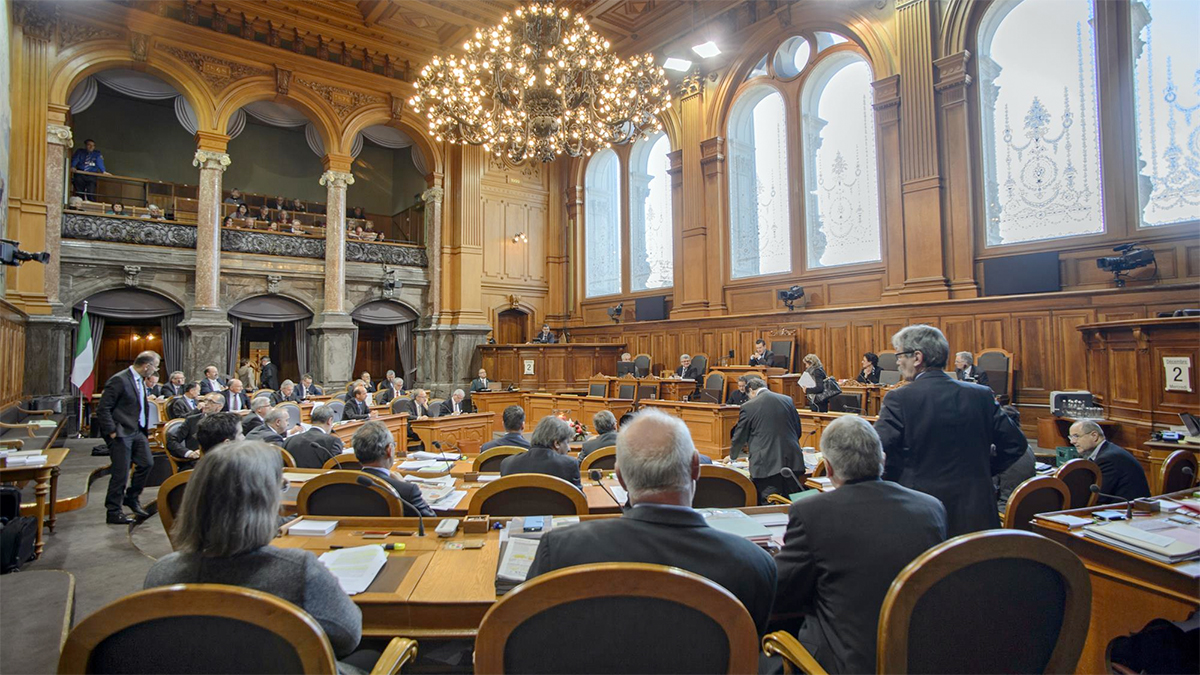Commission of the Council of States refrains from performance protection law
Unlike in the EU, no ancillary copyright for press publishers is to be introduced in Switzerland for the time being. This was decided by the responsible Council of States committee. The decision of the Committee for Science, Education and Culture (WBK) was unanimous, as Committee President Ruedi Noser (FDP/ZH) told the media in Bern on Monday evening.

The Commission had initially proposed to include a remuneration claim for journalists and a performance protection right for press publishers in the law when revising copyright law.
Text annotations and references to articles
The operators of social networks and other Internet platforms should owe publishers remuneration if they make journalistic content accessible. This primarily involves text outlines and references to articles that are displayed to Internet users. In this way, the Internet platforms can obtain data for advertising marketing or place advertisements for the text snippets and thus earn money - money that the publishers miss out on. Users may be content with the text outline on the social network and not click on the link that would take them to the media portal.
Back to the Commission
However, the Council of States was not convinced by the proposal of its commission. In the spring session, it decided to refer the proposal back to the Commission - with the task of reviewing the decisions and taking into account current legal developments in the EU. Now the Commission has dropped its proposals. In view of the media crisis, the additional provisions had initially seemed sensible, said Noser. However, closer examination had shown that they could even be counterproductive. They could lead to Internet platforms no longer displaying the notices.
Decided in the EU
The EU recently passed an ancillary copyright law. The most controversial aspect is the implementation of so-called upload filters: programs that recognize and sort out protected content as soon as it is uploaded to the Internet.
The countries now have around two years to transpose the new rules into national law. From the Commission's point of view, it would not make sense for Switzerland to rush ahead now, Noser said, especially since EU copyright law differs greatly from that in Switzerland. Any adoption of the EU provisions should only take place after thorough examination.
Follow development
Switzerland should therefore wait and see and implement the current copyright revision without ancillary copyright. However, the Federal Council should follow developments in the EU and review Swiss law from this point of view. This is what the WBK wants to demand with a postulate. The report should focus on the situation of publishers and media professionals.
In view of the rapid developments, copyright law would have to be adapted again soon anyway, Noser said. In the Council of States, the proponents of a performance protection right had warned that Switzerland could isolate itself. If large international companies developed the upload filters demanded by the EU, it could be assumed that they would also apply them to Switzerland.
Video on demand and libraries
The Commission has upheld its earlier decision on video-on-demand. It does agree that filmmakers should receive remuneration for video-on-demand use. The regulation is intended to take into account the increasing online use of works and the disappearance of video stores. However, the WBK proposes to exempt music in films from such a remuneration obligation.
The commission proposes a new solution for non-profit libraries that cover their costs. Like schools, they should benefit from tariff concessions. Initially, the WBK had proposed that they should not have to pay remuneration to the collecting societies.
The commission also goes against the National Council on the hotel tax: it does not want to abolish it after all. If the National Council has its way, hotels, hospitals and prisons should no longer have to pay for the use of public works in their rooms. The use is to be defined as personal use. The commission fears that this would lead to conflicts with international regulations, Noser said. Now the ball is in the court of the Council of States. (SDA)








